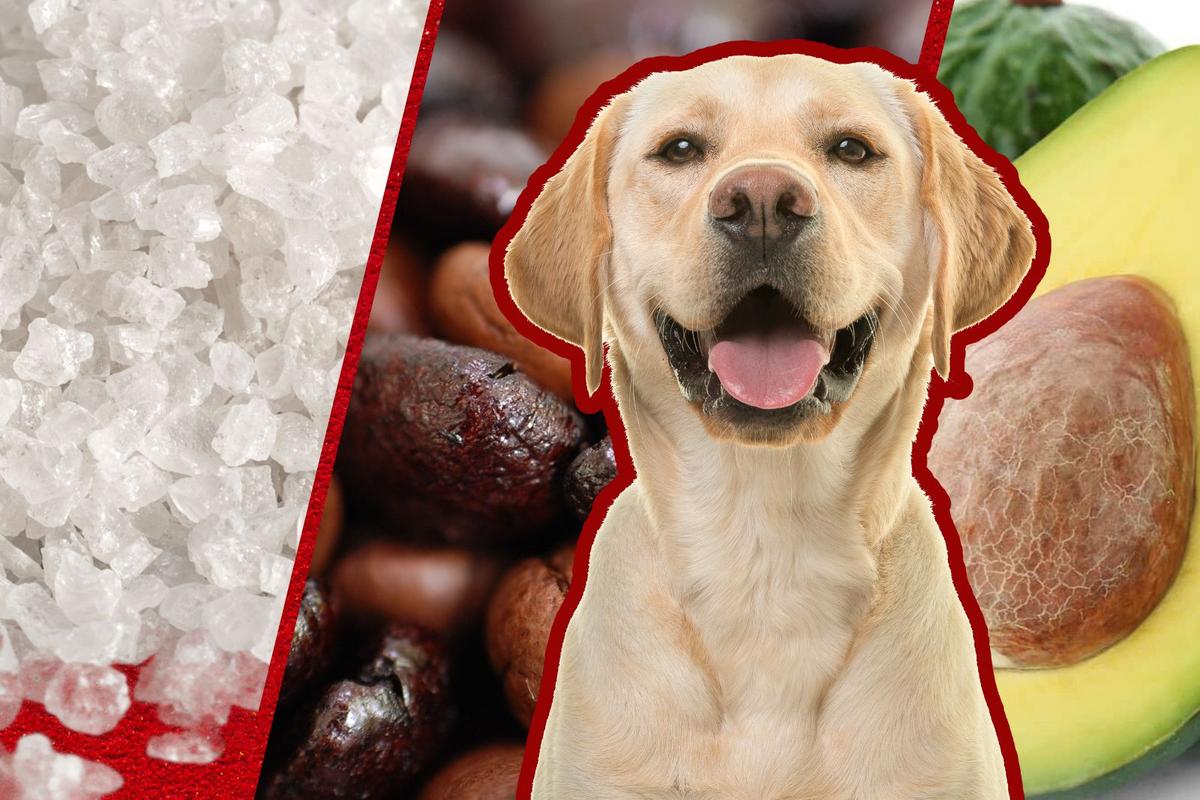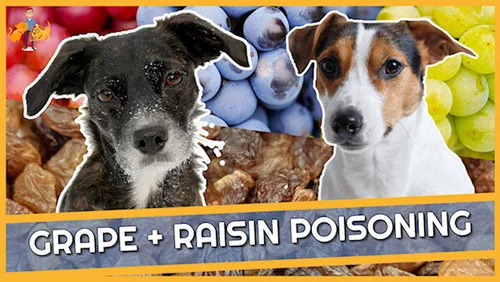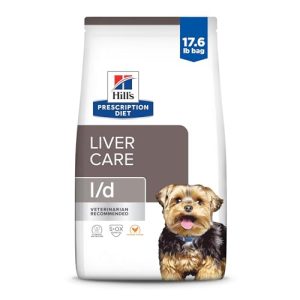You love your dog and want to keep them safe from harm. But have you ever wondered if something as simple as vitamin D could be dangerous for your furry friend?
It’s easy to think vitamins are always good, but when it comes to your dog, too much of a good thing can turn harmful. You need to know the facts before giving any supplements. Keep reading to discover whether vitamin D can really kill a dog and what signs you should watch for to protect your best friend.

Credit: www.barkandwhiskers.com
Vitamin D Basics
Understanding the basics of Vitamin D is crucial when considering its effects on our furry friends. Just like humans, dogs require certain vitamins for optimal health, but too much of a good thing can lead to serious issues. Let’s dive into the essentials of Vitamin D for dogs and explore how it impacts their well-being.
What Is Vitamin D?
Vitamin D is a fat-soluble vitamin important for maintaining healthy bones and teeth. It helps regulate calcium and phosphorus levels in the body. For dogs, Vitamin D is essential for bone development and muscle function.
However, it’s important to know that dogs process Vitamin D differently than humans. While we can synthesize it from sunlight, dogs primarily rely on dietary sources. This difference means that what works for humans might not be suitable for our canine companions.
Sources Of Vitamin D For Dogs
Dogs get Vitamin D mainly through their diet. Commercial dog foods are formulated with the right amount of Vitamin D to meet their needs. However, homemade diets need careful planning to ensure they are balanced.
- Fish Oil: Rich in Omega-3 fatty acids and Vitamin D, it’s a common supplement for dogs.
- Liver: Provides a natural source of Vitamin D but should be fed in moderation.
- Eggs: A good source, but like liver, should be given in controlled amounts.
It’s crucial to avoid over-supplementation. Excessive Vitamin D can lead to toxicity, causing symptoms like vomiting, weakness, and even kidney failure. Always consult your vet before introducing new supplements to your dog’s diet.
Have you ever wondered if those innocent-looking supplements could be harmful? Understanding the right balance can be the difference between a healthy pet and a trip to the vet. Make informed choices for your dog’s diet and ensure their Vitamin D intake is just right.
Vitamin D Toxicity In Dogs
Vitamin D is essential for a dog's health, supporting bones and immune function. Yet, too much vitamin D can harm dogs seriously. This condition is called vitamin D toxicity. It can cause severe health problems and even be fatal. Understanding how toxicity happens and recognizing signs early can save a dog’s life.
How Dogs Get Too Much Vitamin D
Dogs can get excess vitamin D from several sources. One common cause is eating foods or supplements meant for humans. These often contain higher vitamin D doses than dogs need. Some dogs may eat vitamin D-rich rodenticides or plants by mistake. Over-supplementation by owners trying to improve health also leads to toxicity. Even some dog foods with added vitamin D can cause problems if given in large amounts.
Signs Of Vitamin D Poisoning
Vitamin D poisoning affects many body parts. Early signs include:
- Loss of appetite
- Vomiting
- Weakness
- Increased thirst and urination
As poisoning worsens, dogs may show:
- Muscle tremors
- Seizures
- Constipation
- Abdominal pain
High vitamin D causes calcium buildup in organs. This damages kidneys, heart, and lungs. Immediate veterinary care is crucial to prevent death.
Why Excess Vitamin D Is Dangerous
Excess vitamin D can be more harmful than you might think, especially for your dog. While vitamin D is essential for bone health and immune function, too much can disrupt vital processes inside your pet’s body. Understanding why excess vitamin D is dangerous helps you protect your furry friend from serious health risks.
Effects On Calcium Levels
Vitamin D controls calcium absorption in the body. When your dog has too much vitamin D, calcium levels in the blood can rise sharply—a condition called hypercalcemia.
High calcium causes symptoms like:
- Vomiting and diarrhea
- Loss of appetite
- Excessive thirst and urination
Have you noticed your dog drinking or peeing more than usual? This could be an early warning sign of calcium imbalance caused by too much vitamin D.
Impact On Organs
Elevated calcium levels can damage vital organs. The kidneys are particularly vulnerable and may suffer from kidney failure if the excess calcium forms crystals or stones.
The heart and lungs can also be affected. Calcium deposits might build up in tissues, making it harder for these organs to work properly.
Imagine your dog struggling to breathe or showing weakness. These signs could point to organ stress due to vitamin D overdose, which requires immediate veterinary care.
Common Causes Of Overdose
Vitamin D overdose in dogs can cause serious health issues. Understanding common causes helps prevent accidental poisoning. Many cases occur due to exposure to substances with high vitamin D content. Awareness of these sources is key to keeping dogs safe.
Supplements And Medications
Vitamin D supplements designed for humans or pets can be dangerous if given incorrectly. Overdosing often happens when owners give extra doses or multiple supplements at once. Some prescription medications also contain vitamin D. Dogs may ingest these by mistake or through improper dosing. Always follow veterinary advice and store supplements securely.
Human Foods And Products
Certain human foods contain vitamin D and can harm dogs if eaten in large amounts. Examples include fatty fish, cod liver oil, and fortified dairy products. Other products like rodent poisons or topical creams may have vitamin D compounds. Dogs may chew on these items out of curiosity, risking overdose. Keep such products out of reach to avoid accidents.
Immediate Steps If Overdose Is Suspected
Vitamin D overdose in dogs can be dangerous and requires quick action. Knowing the immediate steps to take can make a big difference in your pet’s health. Acting swiftly helps reduce the risk of serious complications.
Recognizing Symptoms Early
Watch for signs like vomiting, loss of appetite, excessive thirst, and frequent urination. Your dog might also seem weak or have an unusual lack of energy. Early detection is key because these symptoms can worsen quickly.
If you notice any sudden changes in your dog’s behavior or health, don’t ignore them. Sometimes, even mild symptoms can signal a serious problem. Have you ever caught a subtle change that saved your pet’s life?
When To Contact A Vet
Reach out to your veterinarian immediately if you suspect your dog ingested too much vitamin D. Time is critical, and professional help can provide treatments like fluids or medication to prevent kidney damage.
If you’re unsure whether the symptoms warrant a vet visit, it’s better to be safe than sorry. Your vet can guide you on the next steps and might suggest bringing your dog in for observation. Remember, quick communication with your vet can save your dog’s life.

Credit: knue.com
Treatment Options For Vitamin D Poisoning
Vitamin D poisoning in dogs is a serious condition that demands prompt and effective treatment. The goal is to reduce the toxic effects of excess vitamin D and protect your dog’s vital organs. Understanding the treatment options can help you act quickly and support your dog's recovery.
Medical Interventions
Veterinarians often start with stabilizing your dog’s condition. This may include intravenous fluids to flush out excess calcium from the bloodstream, which is the main danger in vitamin D poisoning.
Medications like diuretics can help increase urine production, further aiding the removal of calcium. In some cases, drugs that limit calcium absorption or bind calcium in the gut are used to reduce toxicity.
Close monitoring of blood calcium levels is essential during treatment. If your dog shows signs of kidney damage, additional therapies might be necessary to support kidney function.
Home Care And Monitoring
After initial treatment, your dog will need careful monitoring at home. Watch for symptoms such as vomiting, lethargy, or increased thirst, and report any changes to your vet immediately.
Diet plays a crucial role in recovery. Feeding your dog a low-calcium diet can help prevent further complications.
Regular follow-up visits are important to track your dog’s progress and adjust treatment if needed. How attentive are you to subtle changes in your dog’s behavior or health? These observations could save their life.
Preventing Vitamin D Toxicity
Preventing vitamin D toxicity in dogs is crucial to keeping your furry friend safe and healthy. Vitamin D overdose can cause serious health problems, but with the right precautions, you can avoid this risk entirely. Understanding how to handle supplements and what substances to avoid plays a key role in prevention.
Safe Supplement Practices
Always consult your veterinarian before giving your dog any vitamin D supplements. Dosing should be precise because even a small excess can be harmful. Use supplements designed specifically for dogs instead of human vitamins, which often contain higher doses.
Store supplements out of your pet’s reach to prevent accidental ingestion. Monitor your dog closely if you start a new supplement, watching for symptoms like vomiting, weakness, or loss of appetite. Have your vet check vitamin D levels regularly if your dog requires long-term supplementation.
Avoiding Harmful Substances
Many common household items and rodenticides contain high levels of vitamin D, which can be deadly to dogs. Keep your pet away from these products and be cautious during pest control treatments around your home. If your dog accidentally consumes such substances, seek emergency veterinary care immediately.
Be mindful of treats and foods that might contain added vitamin D, especially homemade or unusual diets. You might not realize some dog foods or supplements have excessive vitamin D, so read labels carefully. Have you ever checked your dog’s treat ingredients to ensure safety?
Long-term Effects And Recovery
Vitamin D toxicity in dogs can lead to serious health issues that don’t always disappear quickly. Understanding the long-term effects and the path to recovery is crucial for any pet owner facing this challenge. Recovery often requires patience, careful monitoring, and a tailored care plan to ensure your dog regains full health.
Possible Complications
Excessive vitamin D causes high calcium levels in your dog’s blood, which can damage vital organs like the kidneys and heart.
Some complications that may arise include:
- Kidney failure:High calcium can cause kidney stones or permanent kidney damage.
- Heart problems:Calcium deposits might affect heart rhythm or function.
- Bone issues:Abnormal calcium levels can weaken bones over time.
- Digestive troubles:Vomiting, diarrhea, and loss of appetite can persist during recovery.
Have you noticed any sudden changes in your dog’s behavior or energy levels after vitamin D exposure? Early signs often hint at deeper issues that need attention.
Supporting Your Dog’s Health
Recovery is not just about medical treatment; it’s about your ongoing support and care.
Here’s how you can help your dog heal effectively:
- Follow vet advice strictly:Medications and dietary changes must be consistent to manage calcium levels.
- Hydration:Keep your dog well-hydrated to help flush excess calcium from their system.
- Regular check-ups:Blood tests and ultrasounds help track recovery progress and catch complications early.
- Comfort and rest:Provide a calm environment to reduce stress and support healing.
Think about your dog’s daily routine—are there small adjustments you can make to reduce stress and improve their comfort during recovery?

Credit: www.dogfoodadvisor.com
Frequently Asked Questions
Can Vitamin D Overdose Be Fatal To Dogs?
Yes, an overdose of Vitamin D can be toxic and potentially fatal to dogs. High doses cause calcium buildup, damaging organs.
What Are Symptoms Of Vitamin D Poisoning In Dogs?
Symptoms include vomiting, weakness, excessive thirst, frequent urination, and loss of appetite. Immediate vet care is crucial.
How Much Vitamin D Is Safe For Dogs?
Dogs need only small amounts of Vitamin D. Always follow vet recommendations to avoid toxicity.
Can Supplements Cause Vitamin D Toxicity In Dogs?
Yes, improper use of supplements can lead to dangerous Vitamin D levels. Only give vet-approved doses.
Conclusion
Vitamin D is important but too much can harm dogs. It can cause serious health problems or even death. Always store supplements and vitamins safely away from pets. Watch your dog closely if you suspect vitamin D poisoning. Quick action and a vet’s help can save your dog’s life.
Keep your pet safe by knowing the risks. Prevention is the best way to protect your furry friend. Stay informed and care for your dog wisely.

Emily Barker is the founder of ChillDogLife.com, a space dedicated to helping pup parents discover the best dog products, lifestyle tips, and cozy ideas for happier homes.
A lifelong dog lover, Emily combines her passion for pets with a knack for research to share trusted recommendations on everything from toys and furniture to health and everyday care.
Her goal is simple: to make life easier, stylish, and more joyful for dogs and the people who love them.







